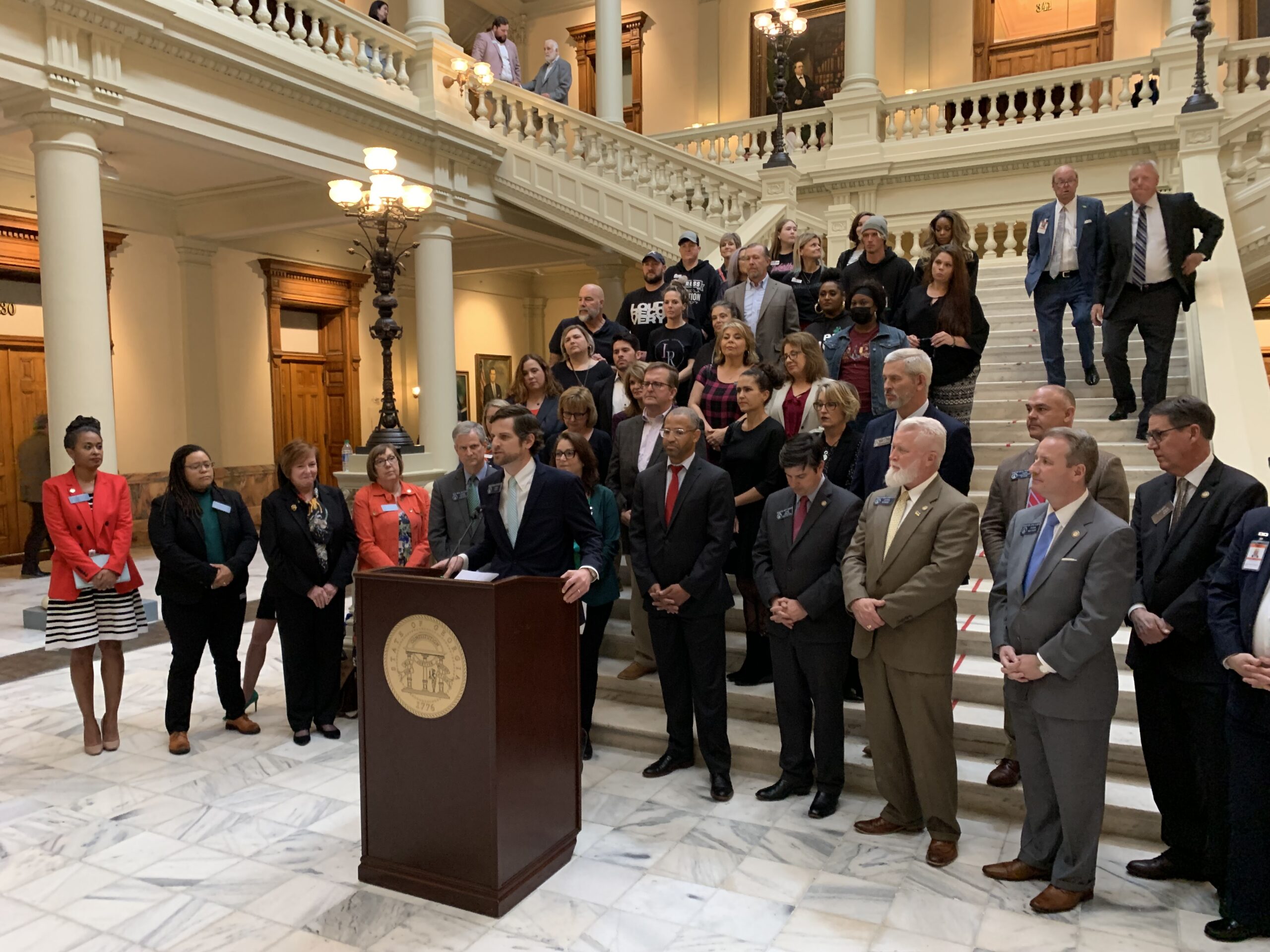House bill to create mental health insurance parity hits Senate turbulence – Georgia Recorder

Broad consensus is apparent among state lawmakers that more should be done to ensure health insurance companies are following a federal law requiring behavioral health benefits to be on par with physical coverage.
But one high-profile proposal to ramp up enforcement of the 14-year-old federal law is already running into questions in the Senate over whether it is too far reaching.
Behavioral health parity has been championed for months as the linchpin of a proposal aimed at improving access to mental health services in a state lagging near the bottom.
The legislation, H.B. 1013, is even titled the Mental Health Parity Act, though it also claims the bill number associated with the state’s process for involuntarily committing someone for mental health treatment and does far more than address parity.
The wide-ranging bill also changes the criteria for having someone involuntarily committed for treatment, creates a service cancelable loan program to help bolster the workforce, and ensures a certain percentage of money in public-funded insurance programs goes to patient care and not administrative costs.
House Speaker David Ralston, a Blue Ridge Republican, has called the bill his top priority this year and cautioned the Senate against “nitpicking” the work of a reform-minded commission formed in 2019. The bill sailed through the House earlier this month.
A Senate panel has already been holding hearings this week – which is an unusual show of urgency so soon after Crossover Day. Jill Nolin/Georgia Recorder
Changes, though, are all but guaranteed as the Senate considers the bill. A Senate panel has already been holding hearings this week – which is an unusual show of urgency so soon after Crossover Day.
But health insurers have objected to the scope of the House lawmakers’ parity provision, and some state senators have questioned the extent to which the House proposal oversteps federal law.
The Senate has also passed its own take on parity, which requires additional reporting but deals only with private insurers. The House version applies to both private insurers and public health insurance coverage, like Medicaid, and calls for more aggressive enforcement of parity rules.
“I think we agree on the principle that the state has to step up with the enforcement of parity,” said Sen. Brian Strickland, a McDonough Republican who is sponsoring the bill in the Senate.
The House bill has the backing of a broad coalition of about 30 groups from all over the state, including the Georgia Council on Substance Abuse. Representatives from that coalition stood with state senators from both sides of the aisle this week for a state Capitol press event, urging lawmakers to keep the spirit of the bill intact.
“This is a time for choosing in Georgia. We will choose to work together for Georgia families, or we will let the special interest once again deny that the federal parity law is enforced in Georgia,” Jeff Breedlove, the council’s chief of communications and policy, said at the event. “Our message to the Senate is this: Perfect but preserve strong language for Georgia families.”
Sen. Dean Burke, a Bainbridge Republican who is leading the Senate subcommittee analyzing the bill, tried to temper expectations for what can be accomplished in the first push in what is expected to be a multi-year effort.
“I want to make sure that the advocates behind me understand that this is a marathon. This is not a sprint. And we’ve got to stay focused,” said Burke, who is also a rural hospital administrator. “But remember, the enemy of good sometimes is perfection, and we need to make sure that we get to a place that we can move the ball this year.”




